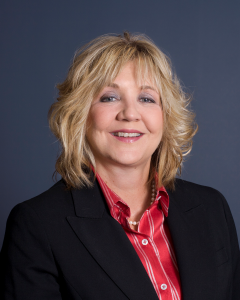Aug 19
2014
Health IT Thought Leader Highlight: Lindy Benton, MEA|NEA

Lindy Benton, CEO of MEA|NEA, has worked in the healthcare information technology for more than 20 years. Before joining MEA|NEA, Lindy served as divisional executive at Sage Healthcare, managing 1,400 employees, and prior to that she worked at Cerner for 15 years. MEA|NEA has nearly 20 years’ experience in providing revenue cycle enhancement solutions for payers and providers, as well as managing the secure exchange of health information, providing critical functionality to payers, medical and dental providers and other agents. Its solutions facilitate secure electronic requests for medical records and documentation to connected network providers for payment integrity, risk adjustment, audit tracking, performance/quality measures, claim attachments and more. Similarly, its technology enables providers to gain productivity via the electronic capture, storage and submissions of healthcare documentation – and to more effectively manage their revenue cycle and reduce claim denials.
Here she speaks about MEA|NEA, electronic attachments and secure health information exchange, how MEA|NEA serves healthcare and some of the most pressing issues facing healthcare’s leaders today.
Tell me more about yourself and your role at MEA|NEA.
I have worked in the healthcare information technology for more than 20 years. I am currently the CEO of MEA|NEA, a provider of electronic attachment and health information exchange solution.
Who uses the company’s products, and how are they enhancing their health systems and practices?
We have three major client sets. One is providers. They represent the point of origin for most medical records. One is payers or managed care organizations. They are often the requestors of medical record information about the members enrolled in one of their health plans. And the third we call partners who are those organizations who sit in-between the originators of medical record information and the requestors of medical record information. The enhancements you ask about are intuitive and real. We enhance the exchange of medical record protected health information – or phi – by making it 100 percent electronic, trackable and auditable.
In what ways is MEA|NEA evolving and where are you seeing the most change, the most rapidly?
With the increased focus on outcomes in healthcare in America, we are seeing an increase in the demand for medical record reviews. We see this increasingly being driven by the federal government, but the commercial sector is also participating. There are companies whose sole purpose is to audit the care being provided to patient populations and the reimbursement of charges related to that care. “Payment integrity” is commonly referenced in the industry today, and that wasn’t the case until recently. We are leading in process efficiencies to support these changes.
Tell me more about your involvement with CMS. How have the company and its strategy changed since the adoption of electronic claims submission through Medicare?
In January 2012 we began delivering medical records to Medicare contractors as one of a few organizations certified by CMS to do so. Today there are 23 certified organizations and we are the largest serving the acute-care hospitals of the nation. We are the 2nd largest overall. Since 2012 we have been selected by four organizations who are listed on the www.cms.gov website as their technology partner. We have a strong relationship with key leaders inside of CMS and we plan to continue to invest there. With 15 percent of US healthcare being tied to Medicare, this is a key component of our future in the medical marketplace.